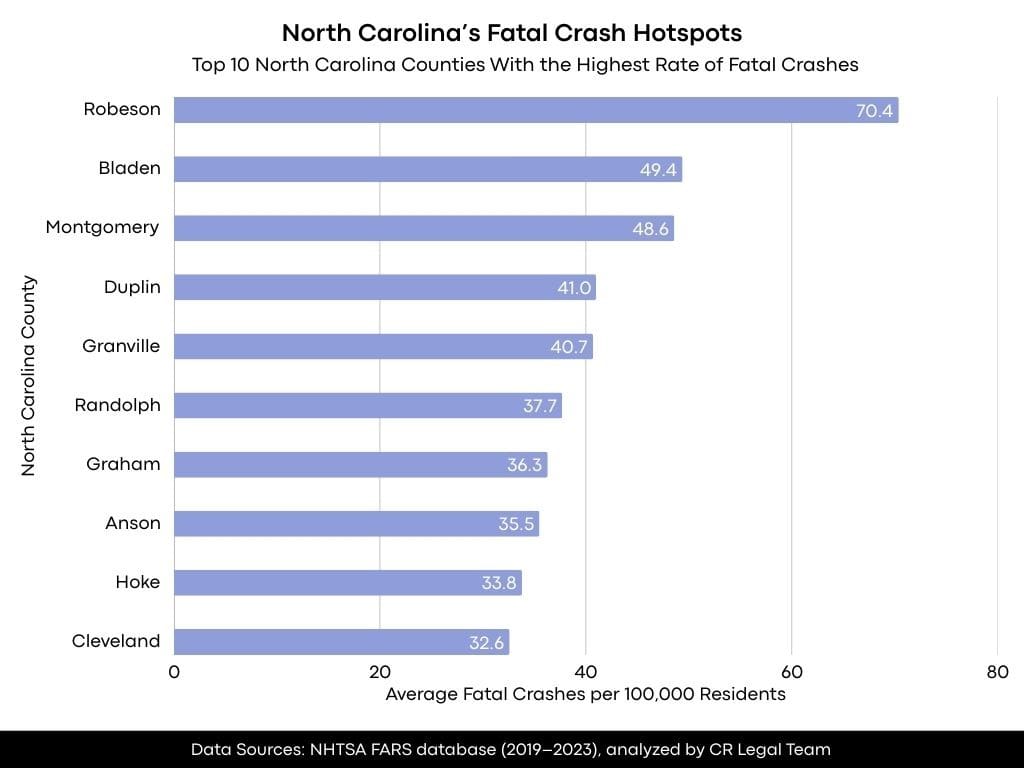As the federal government advances its full enforcement of the REAL ID Act, travelers in the United States are increasingly experiencing Transportation Security Administration (TSA) secondary screenings triggered by mismatched identity documents. Amicus International Consulting has released new guidance explaining lawful responses to such encounters, helping travelers navigate the heightened scrutiny without jeopardizing their travel rights.
Why Mismatched IDs Trigger TSA Action
Airport security systems rely on identity documents matching exactly across multiple checkpoints. When discrepancies arise, they frequently trigger TSA’s Secondary Security Screening Selection (SSSS) process or on-the-spot document inspection. A traveler may be diverted to additional questioning and searches if their government-issued identification and boarding pass do not align in name, date of birth, gender marker, or formatting.
The transition to REAL ID has accelerated the rise in mismatched IDs. Documents issued by state DMVs must now comply with federal standards, which in turn are cross-referenced with airline reservation systems and watchlist databases. Minor differences that once went unnoticed now activate automated flags.
Amicus analysts emphasize that most mismatches are benign. Typographical errors, name sequence differences, and outdated records are often the culprit. However, TSA officers are required to treat any irregularity as potentially significant until proven otherwise.
The Legal Basis for Secondary Screening
The authority for TSA to conduct secondary screenings is rooted in federal aviation security law. Travelers are required to present valid identification at security checkpoints, and TSA retains discretion to apply enhanced screening to resolve any doubt about identity or intent.
Mismatched IDs can generate several responses:
- Additional questioning about travel history and identification documents
- Verification calls to state DMVs or federal databases
- Physical searches of carry-on baggage and personal items
- “Quad S” boarding pass designation, requiring additional screening at the gate
While intrusive, these procedures are lawful. The critical issue for travelers is knowing how to respond in ways that maintain compliance without self-incrimination or unnecessary escalation.
Amicus Guidance on Lawful Responses
Amicus International Consulting’s newly published guidance equips travelers with practical steps to manage secondary screening. The central message is to remain calm, cooperative, and precise, while understanding the limits of lawful questioning.
Key recommendations include:
- Always carry supporting documents: Certified copies of court orders, marriage certificates, or name-change affidavits help reconcile mismatches.
- Avoid improvisation: Provide consistent, factual answers without speculation. Contradictions, even accidental, prolong screening.
- Know your rights: Travelers are not obligated to answer questions unrelated to identity or travel, such as political opinions or personal finances.
- Request clarification: If asked unusual questions, politely inquire how they relate to identity verification.
- Document the incident: After screening, record the officer’s name, time, and nature of questioning in case of later dispute.
The guidance also provides sample scripts, such as how to explain a recent name change or how to clarify foreign diacritical marks absent on U.S. documents.
Case Study: Holiday Traveler Corrects Name Format
A traveler flying during the holiday rush presented a REAL ID driver’s license listing a middle initial, while the airline ticket had been booked without it. The mismatch triggered a referral to TSA secondary screening.
Officers questioned the traveler’s identity and inspected carry-on luggage. Using Amicus’s recommended documentation, the traveler produced a certified copy of a passport with the identical full name. This aligned the records and resolved the matter within 15 minutes.
The traveler’s calm explanation and pre-prepared supporting documents ensured that the screening ended quickly, with no missed flight.
Case Study: International Student Confronted With DOB Error
An international student studying in the U.S. encountered secondary screening when the date of birth on the student’s DMV-issued REAL ID license did not match the passport. A clerical error at the DMV was to blame.
The student, guided by Amicus, carried notarized DMV correction forms and school records confirming identity. TSA accepted the documentation, noted the issue for correction, and allowed boarding.
Without this preparation, the student risked flight denial or referral to Customs and Border Protection for deeper questioning.
TSA’s Emphasis on Risk-Based Screening
Since 2011, TSA has adopted risk-based screening strategies, meaning passengers perceived as higher risk face more scrutiny. Mismatched IDs automatically increase perceived risk.
Travelers with frequent mismatches may find themselves repeatedly subject to SSSS boarding passes. This designation requires extensive secondary searches at both the checkpoint and gate. While inconvenient, these are lawful exercises of TSA discretion.
Amicus cautions that habitual mismatches, if unresolved, can complicate travel long term. Proactive correction of records is the most effective remedy.

Case Study: Business Executive Delayed at Multiple Airports
A business executive traveling on a tight schedule repeatedly encountered secondary screening due to the inconsistent spelling of a surname between the passport and driver’s license. The recurring delays jeopardized business commitments.
After consulting Amicus, the executive obtained corrected records from the DMV and updated frequent flyer profiles to align with the passport. TSA secondary screenings ceased within weeks.
This case demonstrates how unresolved mismatches can cause cumulative disruption, while structured remediation restores efficiency.
What TSA Officers Can and Cannot Ask
TSA officers may lawfully ask for documents to confirm identity, inquire about travel plans, and inspect belongings. However, they are not authorized to interrogate travelers about political beliefs, religious practices, or unrelated personal matters.
Amicus’s guidance packet outlines how to decline irrelevant questions while maintaining cooperation respectfully. This balance protects travelers from overreach without appearing noncompliant.
Case Study: Dual National Traveler with Two Passports
A dual national traveling on one passport was questioned about an alternate identity found in airline records. The mismatch arose because of a prior booking under the second passport.
By presenting both passports and explaining lawful dual nationality, the traveler satisfied TSA inquiries. Amicus emphasizes that in such cases, complete transparency with lawful documentation is the best strategy.
Impact on Airline Operations
Secondary screenings affect not only individual travelers but also airline efficiency. Extended checks at boarding gates delay departures, create bottlenecks, and frustrate passengers.
Airlines are now coordinating with TSA to reduce mismatch-driven delays. Some carriers issue alerts during booking if a passenger’s profile does not align with government-issued ID, allowing corrections before check-in.
Amicus notes that this proactive airline role reduces last-minute screening triggers and improves overall security flow.
Case Study: Family Trip Interrupted by Hyphenated Names
A family traveling together encountered delays when children’s last names appeared with hyphens on passports but without on boarding passes. TSA directed the family to secondary screening, causing significant stress.
Amicus advises families to standardize name formatting during bookings and maintain certified copies of birth certificates. This ensures smoother verification when traveling with minors.
Preparing for REAL ID Enforcement in 2026
The Department of Homeland Security has set May 7, 2025, as the current enforcement date for REAL ID at airports, though delays remain possible. Once fully enforced, travelers must present REAL ID-compliant credentials or passports for domestic flights.
Amicus predicts a spike in mismatches as millions of Americans upgrade to new IDs. Errors in data entry, name updates, and document sequencing will lead to more secondary screenings.
The consulting firm urges travelers to review their documents well in advance of travel and to use its guidance to prepare lawful responses to TSA inquiries.
Case Study: Elderly Traveler with Outdated License
An elderly traveler presented a state-issued license that did not meet REAL ID standards, triggering secondary screening. TSA requested additional proof of identity.
Amicus guidance helped the traveler carry utility bills and a Social Security card as supplementary evidence. TSA allowed boarding but advised renewal before future travel.
This case underscores the need for vulnerable populations, including seniors, to prepare in advance for stricter screening environments.
The Role of Communication in Secondary Screening
Tone and demeanor matter greatly during TSA encounters. Amicus emphasizes that respectful communication often determines the length and outcome of secondary screenings.
Travelers who remain calm, provide precise answers, and avoid frustration tend to resolve screenings more quickly. Those who argue or appear evasive risk extended questioning or denial of boarding.
The Amicus guidance includes de-escalation techniques and sample phrases to maintain cooperative interactions.
Case Study: Traveler Avoids Escalation by Remaining Calm
A traveler flagged for secondary screening over a mismatch in middle names was subjected to detailed questioning. By remaining calm and using Amicus-recommended scripts, the traveler explained the discrepancy and provided supporting documents.
The screening concluded smoothly, and the traveler boarded on time. TSA officers noted the traveler’s cooperative attitude in their report, further reducing future risk.
Educating the Public About Rights and Responsibilities
Amicus International Consulting calls for broader public education on the rights and responsibilities of travelers under TSA authority. While TSA officers retain lawful discretion, travelers are not powerless.
Knowing what documents to carry, how to answer questions, and when to request clarification empowers travelers to navigate screenings effectively.
Amicus’s guidance is designed not only as a remediation tool but also as a preventive framework, minimizing future mismatches.
Conclusion
As REAL ID enforcement nears, TSA secondary screenings triggered by mismatched IDs are on the rise. While disruptive, these encounters are lawful exercises of aviation security authority. The key for travelers is to respond lawfully, calmly, and effectively.
Amicus International Consulting’s guidance equips travelers with the tools to navigate these challenges: supporting documentation, lawful response scripts, and de-escalation strategies. With preparation, mismatches need not derail travel plans.
For individuals, families, students, executives, and seniors, the message is consistent: proactive review and lawful preparation safeguard travel rights in an era of heightened security.
Contact Information
Phone: +1 (604) 200-5402
Email: info@amicusint.ca
Website: www.amicusint.ca

